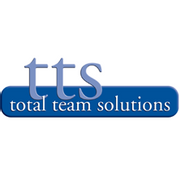
To date, Republican lawmakers have been unsuccessful in their attempts to repeal the Affordable Care Act. However, that does not mean that there are no significant changes looming for 2018 and beyond. While some potential changes may have remote chances of occurring, others appear to me more likely.
First of all, there is the individual mandate that requires everyone to be covered by a health care plan. While still in place, the current Senate Tax Reform bill repeals this mandate if passed. The house version does not include repealing the individual mandate, but leaders are open to it now that the Senate has passed their bill. Democrats remain opposed to this measure, but this seems like one for the more likely reconciliation items to be enacted in the final legislation,
Second is the definition of essential health benefits. Under the Affordable Care Act, the Centers for Medical and Medicaid Services (CMS) defines the essential health benefits that all qualified health plans must contain. However, the ACA would allow states to define their own essential health benefits starting in 2019. Insurers argue that this will be confusing for consumers, but that should not be the case other than it will create more options for individuals to select from. On the other hand, providers express concern that this will reduce coverage for certain benefits such as substance abuse, behavioral health and maternity benefits. While this could be true for new plans created under these reduced essential benefit platforms, other plans with existing levels of essential benefits would continue to be available. One thing that all parties do agree on is that it would reduce premiums and provide truly affordable insurance for healthy individuals who are currently not covered and willing to pay the penalty under the mandate than expensive premiums that included numerous coverages that they do not require.
Third, the ACA includes provisions for new taxes that would take effect in 2018. One is a 2.3% tax on certain medical devices, such as pacemakers the second is a health insurance tax. Both have already been delayed once, but whether they will be delayed again is yet to be seen. Additionally, the so-called Cadillac 40% tax on higher end health insurance is scheduled to begin in 2020. While this appeared reasonable when first passed, since there is no inflation adjustment to the premium levels established, it is estimated that more than half of all plans will be subject to this significant tax by the time it takes effect.
The healthcare situation is very fluid right now and changes can happen quickly. If you are a small business that would prefer to spend its time managing and growing operations and leave this regulatory compliance work to the specialists, then contact John Morlock at Total Team Solutions [email at jmorlock@ttspro.com or call at 800-836-9678] to find out how affordable our business advisory services can be.
ABOUT TOTAL TEAM SOLUTIONS: Total Team Solutions is a full service Human Resources Outsourcing company helping small business manage their payroll, employee benefits and human resources needs to reduce expenses and save them time so they can focus on running and growing their businesses. Based in Trumbull, CT, Total Team Solutions serves clients in Connecticut, Massachusetts, New York and New Jersey.
About the Business
Have a question? Ask the experts!
Send your question

